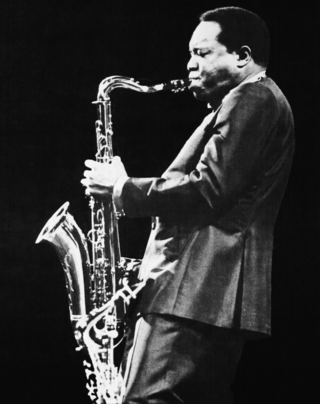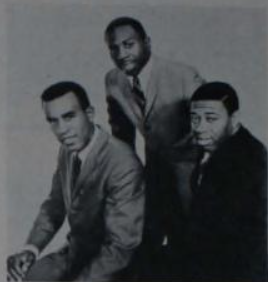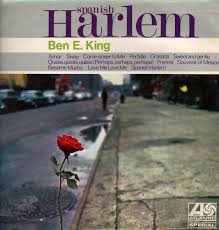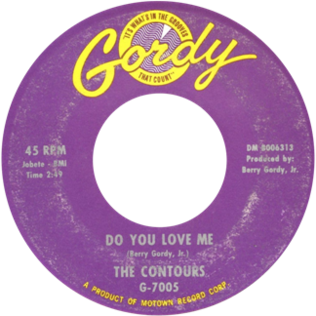Related Research Articles

The Coasters are an American rhythm and blues/rock and roll vocal group who had a string of hits in the late 1950s. With hits including "Searchin'", "Young Blood", "Charlie Brown", "Poison Ivy", and "Yakety Yak", their most memorable songs were written by the songwriting and producing team of Leiber and Stoller. Although the Coasters originated outside of mainstream doo-wop, their records were so frequently imitated that they became an important part of the doo-wop legacy through the 1960s. In 1987, they were the first group inducted into the Rock and Roll Hall of Fame.

Sam & Dave were an American soul and R&B duo who performed together from 1961 until 1981. The tenor (higher) voice was Sam Moore (1935–2025) and the baritone/tenor (lower) voice was Dave Prater (1937–1988).

Gladys Knight & the Pips were an American R&B, soul, and funk family music group from Atlanta, Georgia, that remained active on the music charts and performing circuit for over three decades starting from the early 1950s.

Curtis Ousley, known professionally as King Curtis, was an American saxophonist who played rhythm and blues, jazz, and rock and roll. A bandleader, band member, and session musician, he was also a musical director and record producer. A master of the instrument, he played tenor, alto, and soprano saxophone. He played riffs and solos on hit singles such as "Respect" by Aretha Franklin (1967), and "Yakety Yak" by The Coasters (1958) and his own "Soul Twist" (1962), "Soul Serenade" (1964), and "Memphis Soul Stew" (1967).

"Twist and Shout" is a 1961 song written by Phil Medley and Bert Berns. It was originally recorded by The Top Notes, but it did not become a hit in the record charts until it was reworked by the Isley Brothers for their album Twist & Shout in 1962. The song has been covered by several artists, including the Beatles, Salt-N-Pepa, The Astronauts and Chaka Demus & Pliers, who experienced chart success with their versions.

Gene Chandler is an American singer, songwriter, music producer, and record-label executive. Chandler is nicknamed "the Duke of Earl" or, simply, "the Duke." He is best known for his most successful songs, "Duke of Earl" and "Groovy Situation", and his association with the Dukays, the Impressions, and Curtis Mayfield.

The Impressions were an American music group originally formed in 1958. Their repertoire includes gospel, R&B, doo-wop, and soul.

"Spanish Harlem" is a song recorded by Ben E. King in 1960 for Atco Records. It was written by Jerry Leiber and Phil Spector and produced by Jerry Leiber and Mike Stoller. "Spanish Harlem" was King's first hit away from The Drifters, peaking at number 15 on Billboard's rhythm and blues and number 10 in pop music chart.
"The Twist" is an American pop song written and originally released in 1958 by Hank Ballard and the Midnighters as a B-side to "Teardrops on Your Letter". It was inspired by the twist dance craze. Ballard's version was a moderate hit, peaking at number 28 on the Billboard Hot 100 in 1960. On the US Billboard Hot R&B Sides chart, the original version of "The Twist" first peaked at number 16 in 1959 and at number six in 1960. By 1962, the record sold in excess of one million copies, becoming Ballard's fourth million seller.

"Do You Love Me" is a rhythm and blues song recorded by the Contours in 1962. Written and produced by Motown Records owner Berry Gordy Jr., it appeared twice on the Billboard Hot 100 chart, reaching numbers three in 1962 and eleven in 1988.
"Don't Play That Song (You Lied)" is a song written by Ahmet Ertegun and Betty Nelson, the wife of soul singer Ben E. King. It was first recorded by King and was the title track on his third album Don't Play That Song! (1962). The song reached number 2 on the U.S. R&B singles chart and number 11 on the pop chart when released as a single on Atco Records in 1962. In Europe, it ranked at number 10 in Italy on FIMI National Charts between 1962 and 1963.

"Lookin' for a Love" is a song written by J. W. Alexander and Zelda Samuels and was the debut hit of the family group the Valentinos, which featured Bobby Womack. The song was a hit for the Valentinos, climbing to number eight on the R&B chart and crossing over to number 72 on the Billboard Hot 100 in 1962, released on Sam Cooke's SAR label. The song became a much bigger hit when Womack issued a solo version in 1974; this version reached number one on the R&B chart and number ten on the Billboard Hot 100. As well, an interim version of "Lookin' for a Love" by the J. Geils Band in 1971 was a top-40 hit for them, peaking at number 39.
"Share Your Love with Me" is a song written by Alfred Braggs and Deadric Malone. It was originally recorded by blues singer Bobby "Blue" Bland. Over the years, the song has been covered by various artists, most notably Aretha Franklin who won a Grammy Award for her 1969 rendition. Other artists who covered the song include The Band in 1973, Kenny Rogers in 1981, and most recently, Van Morrison in 2016.
"It's All Right" is a 1963 song recorded by The Impressions and written by the group's lead singer, Curtis Mayfield. The single was the most successful chart entry of the group's career. "It's All Right" was one of two top-ten singles for the group on the Billboard Hot 100, and the first of six number ones on the Billboard R&B chart. It also reached No.1 on the Cash Box R&B chart.
"Funny How Time Slips Away" is a song written by Willie Nelson and first recorded by country singer Billy Walker. Walker's version was issued as a single by Columbia Records in June 1961 and peaked at number 23 on the Hot C&W Sides chart before being included on his 1963 Greatest Hits album. The song has been featured in several live action films and television shows, such as in "Switch", the first episode of the second season of AMC’s series Better Call Saul in 2016 and in the 2020 Netflix drama film The Devil All the Time.

The Top Notes were an American R&B vocal group, centered around the singers Derek Martin and Howard Guyton. They released a number of singles in the early 1960s, among which was the first recording of "Twist and Shout", which was a hit when recorded by the Isley Brothers and later by the Beatles.
"I Cried a Tear" is a song written by Fred Jay and Al Julia and performed by American singer LaVern Baker. Atlantic Records released it as a single in 1958, which became Baker's most successful appearance on the record chart hits. King Curtis played the saxophone.

"Ooh Poo Pah Doo" is a song written and performed by Jessie Hill. It was arranged and produced by Allen Toussaint. The single reached No. 3 on the Billboard R&B chart and No. 28 on the Hot 100 in 1960 although the charts list the B-side, instrumental "Ooh Poo Pah Doo - Part II", as the hit.
Billboard Top R&B Records of 1962 is the year-end chart compiled by Billboard magazine ranking the top rhythm and blues singles of 1962.
References
- ↑ Whitburn, Joel (2004). Top R&B/Hip-Hop Singles: 1942-2004. Record Research. p. 327.